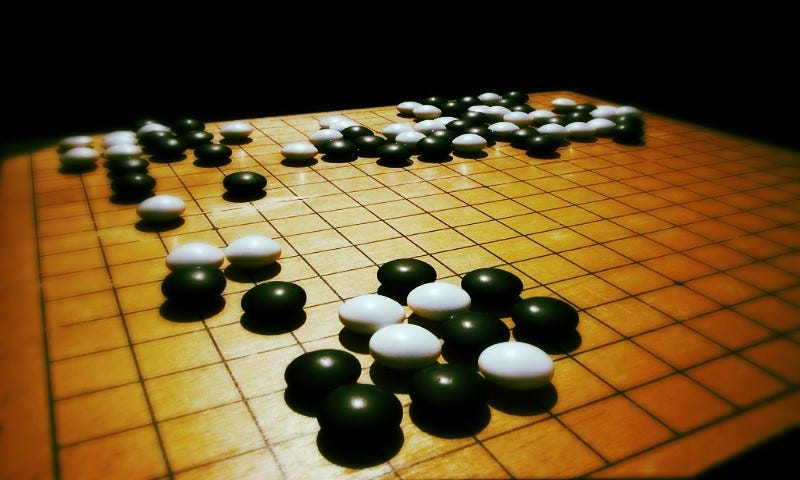ChinAI #38: Part 2 - Microsoft Research Asia 20th Anniversary

Welcome to the ChinAI Newsletter!
These are Jeff Ding's weekly translations of writings on AI policy and strategy from Chinese thinkers. I'll also include general links to all things at the intersection of China and AI. Please share the subscription link if you think this stuff is cool. Here's an archive of all past issues. *Subscribers are welcome to share excerpts from these translations as long as my original translation is cited.
I'm a grad student at the University of Oxford where I'm the China lead for the Governance of AI Program, Future of Humanity Institute.
Microsoft Research Asia: There’s levels to this
Part 2 of our recognition of Microsoft Research Asia (MSRA)’s 20-year run finishes out the translation of the longform article from last week on “The Whampoa Academy of China’s Internet.” One of my nerdy hobbies is to read articles from longform.org, so it’s really cool to be able to share longform articles in Chinese. The easy takeaway is to take the headline, run with it, and continue to make everything about a zero-sum competition between the US and China over technological capabilities.
And on one level, MSRA has certainly played a key role in China’s AI rise by both attracting initial overseas talent and then cultivating domestic talent: it has “trained more than 4,800 Chinese interns and more than 500 of them are now active in various large companies in China's IT industry, including Baidu, Tencent, China Mobile, Alibaba, Lenovo, etc. Over 100 people teach at leading universities in China, such as Tsinghua University, Peking University, University of Science and Technology of China, and the Chinese Academy of Sciences.”
But as the great American philosopher Kendrick Lamar once wrote, "It's levels to it, you and I know." And there are more levels to the story of MSRA. One level is the institute’s benefits for Microsoft. Zhou Ming’s story, fleshed out further in the last half of the translation, embodies this level. He taught at Tsinghua for 8 years before joining MSRA as one of the first researchers, and 20 years later, he’s still making immense contributions for Microsoft (principal researcher on Microsoft XiaoIce, an enormously popular social chatbot in China, and Xiaona, Chinese version of Cortana [digital assistant]).
Another level — it’s natural to look at things in terms of countries and great power competition, but it’s nice to hear stories about the people in the midst of it all. By the end of the piece, you get to know KFL (Kai-fu Lee), ZYQ (Zhang Yaqin), Zhang Hongjiang (ZHJ), Shen Xiangyang (SXY) as human beings who have families, go through hardships, and sing karoake.
Lastly, the level of the long-view. The seeds planted by MSRA 20 years ago are only now sprouting. The translation stresses the importance of patiently keeping on with basic research at places like MSRA: this patience comes from John McCarthy, his mentor’s mentor, and the father of AI. "As for today’s extreme hype over artificial intelligence, it was actually my mentor’s mentor who put forward this concept," Hsiao-Wuen Hon (current dean of MSRA) told the "People" reporter. It just happens to be the 60 year anniversary for when the concept was first put forward. "60 years, a jiazi.” John let Hsiao-Wuen Hon see that "it’s possible that the thing someone is working very hard on today will be popular again decades later...”, “Without the cultivation of people who came before, how can there be today’s AI, so you can’t say that today’s AI is hot, so everyone should not do basic research. Where is the foundation 60 years later?” he said to the “People” reporter.
READ FULL TRANSLATION: MSRA — CHINA’S INTERNET WHAMPOA ACADEMY
This Week's ChinAI Links
Chinese phrase of the Week: 一甲子: (yi1jia3zi3): phrase meaning 60-year period, goes back to ancient times
I thought this piece by Kelsey Atherton captured some of the issues with the US Department of Commerce’s proposed guidelines for export controls on technologies, including AI (several of those listed are more mathematical concepts or processes than distinct, controllable technologies)
Karen Hao’s flowchart on “Is This AI” also touches on the difficulty of defining “What is AI, exactly.” Bottom of article has link to subscribe to her excellent AI newsletter The Algorithm.
This presentation from my GovAI colleague, Ben Garfinkel, presents an original view on surveillance, questioning some of the assumed tradeoffs present in discussions of the concept - with clear applications in the China context. FHI’s director Nick Bostrom recently published a working paper on “The Vulnerable World Hypothesis” that touches on similar themes.
A must-read NYT article on the human labor (tagging data) behind China’s AI ambitions.
Thank you for reading and engaging.
Shout out to everyone who is commenting on the translations - idea is to build up a community of people interested in this stuff. You can contact me at jeffrey.ding@magd.ox.ac.uk or on Twitter at @jjding99
